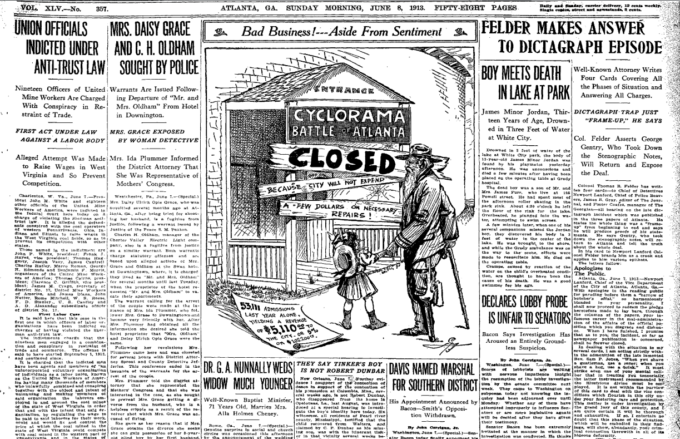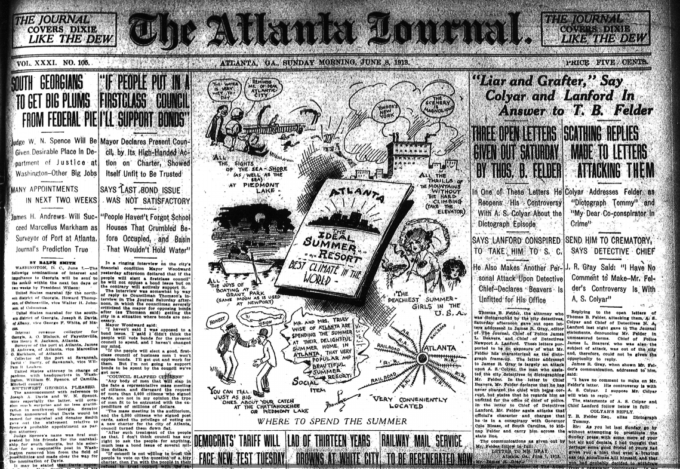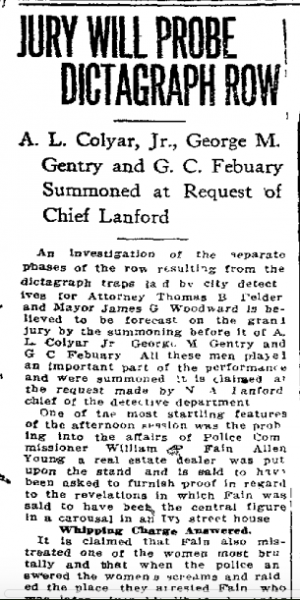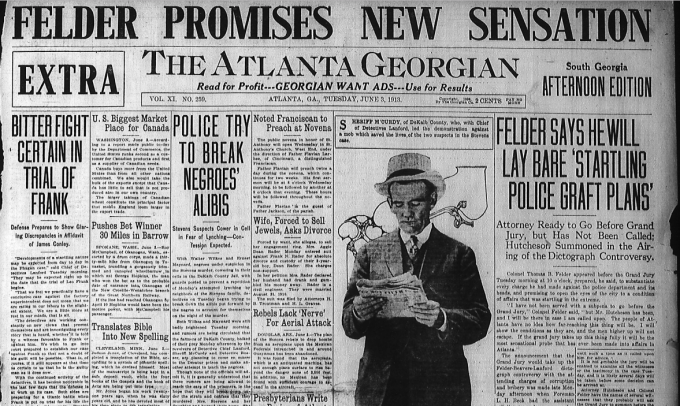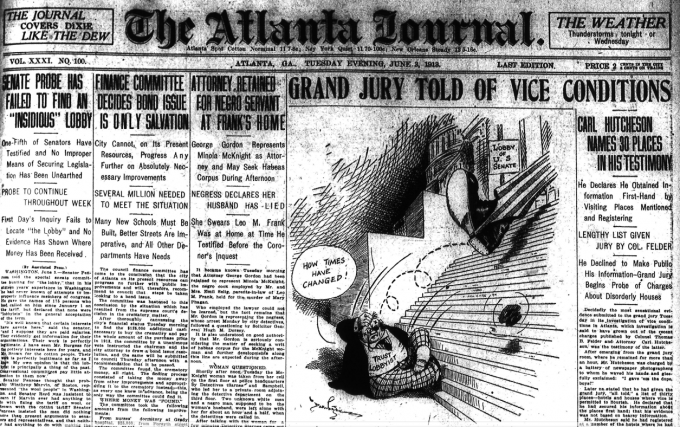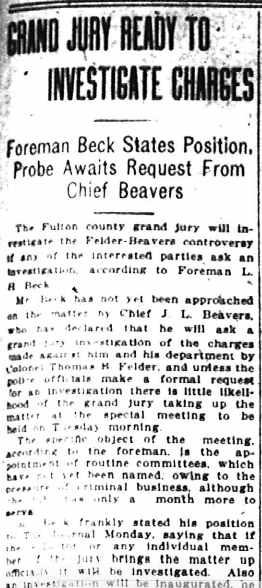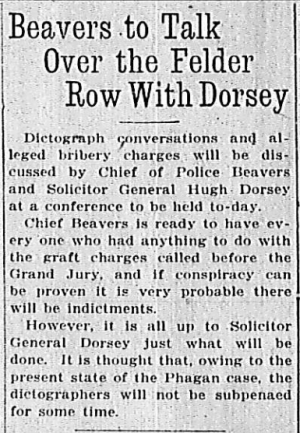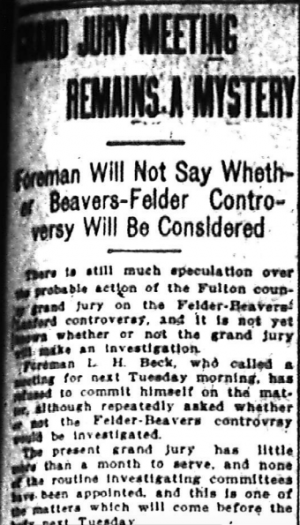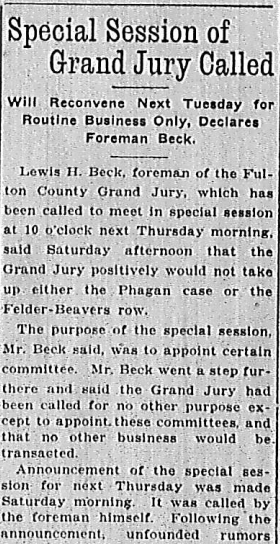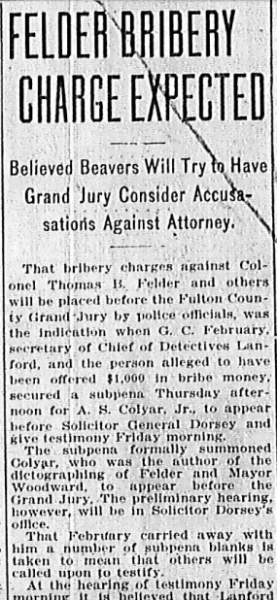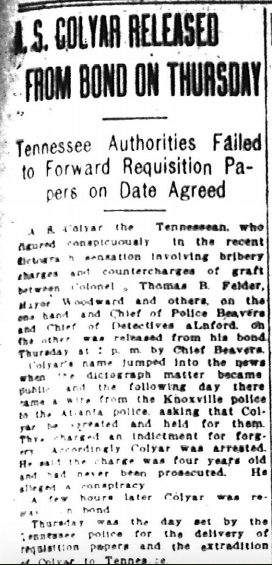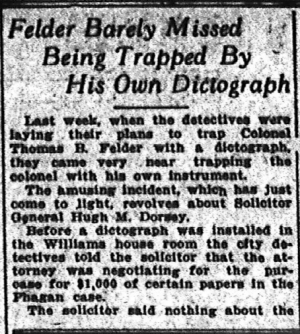 Another in our series of new transcriptions of contemporary articles on the Leo Frank case.
Another in our series of new transcriptions of contemporary articles on the Leo Frank case.
The Atlanta Georgian
Tuesday, July 1, 1913
Grand Jury Develops Sensational Sequel to Famous Dictograph Scandal.
A. S. Colyar, Jr., dictographer of Colonel Thomas B. Felder, Mayor Woodward and C. C. Jones, was indicted by the Grand Jury on the charge of criminal libel Tuesday forenoon.
Colyar is the man who sought to trap Colonel Felder by means of the dictograph into offering a bribe of $1,000 for certain affidavits in the Phagan case in the possession of the police. The dictograph records as furnished an afternoon newspaper by Colyar contained the offer.
Colonel Felder swore the records were padded. Largely on Colonel Felder’s representations, the indictment was procured. John Pascal, of The Journal, was the only witness called by the Grand Jury in considering Colyar’s case.
Chief of Detectives Lanford and Colonel Felder, indicted last week by the Grand Jury, obtained their freedom by making a $500 bond. It was expected that the same bond would be imposed upon Colyar.
Much of the time Tuesday was occupied by members of the Grand Jury in probing into police affairs. Without calling any witnesses, the scandal which has shaken the department was given serious consideration for nearly two hours. The result of the discussion was not made public.
* * *

 Another in
Another in 



